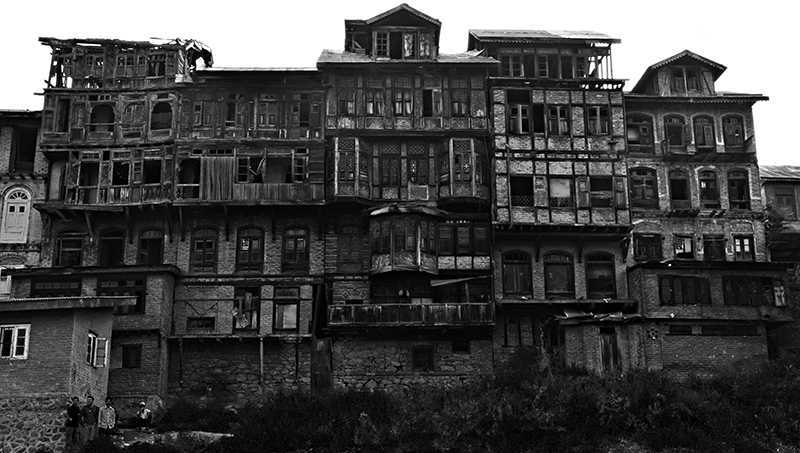Parshati Dutta
Grant Period: One year and six months
Parshati Dutta is a Delhi-based researcher. She has done her MArch from the CEPT University, Ahmedabad. In 2017, she received the Sahapedia UNESCO Project Fellowship to study the historical context and contemporary relevance of the Mughal Road in Jammu and Kashmir. As a researcher, she has worked on several heritage-related projects in Kashmir for the last three years. She has actively presented her research work at various seminars, and published her articles and essays in several online and offline publications.
Through this project, Parshati will study the significance of cultural heritage in the present time of conflict in Kashmir. Exploring ways in which multiple forces engaged in a conflict zone impact the idea and sites of heritage, the project aims to understand the role cultural heritage plays in shaping community memories, identities, and ways in which its presence, erosion and absence impact society. She aims to explore the cultural landscape of Kashmir that has been reduced to a disrupted space, where life has been inflicted with chronic violence that besets it on a daily basis. In a direct manifestation of conflict, the heritage buildings with assets have been occupied and modified by the Indian armed forces, expanding the military limits and shrinking public spaces with concertina wire, bunkers and convoys enforcing control. Complete or partial occupation and subsequent modification of monuments by armed forces on one hand, and destruction of monuments that once epitomised a syncretic tradition by the hardliners on the other has led to a steady erosion of heritage sites in this conflict zone.
Through extensive interviews with local people from various communities, diversified through age, gender and religious affiliations, Parshati will study the importance of cultural heritage in shaping and defining identities. Contextualising the understanding of cultural heritage within Kashmir, she will examine how conflict impacts the loosely-defined notion of ‘Kashmiriyat’ and the broad umbrella of syncretic tradition. She aims to form an analytical framework for the various kinds of impact inflicted upon heritage by conflict to understand how shared values of various communities are shaped and reshaped by it. She will also study the various institutional frameworks that are employed to protect and preserve heritage sites during conflict, their limitations and possible ways of greater reinforcement.
This is the third project that IFA has supported in Kashmir in the last four years. The current decade has marked a watershed in the recent troubled history of Kashmir. Amidst the daily violence, the people of Kashmir have carved an alternative cultural landscape through which they express dissent and the popular sentiment for freedom. All these three projects supported by IFA attempt to understand Kashmir in a fresh light and move beyond the hardened representations that dominate the mainstream discourse. Relooking at the last three decades of cultural history in Kashmir and moving away from the cacophony of political narratives, the projects by Sanjay Kak, Gowhar Yaqoob and Parshati Dutta, supported under the Arts Research programme, break away from the ‘well-known’ and delve into the lesser-known spheres of Kashmir at present. The decisions to support these projects are embedded in our programmatic mandate of supporting critical work that challenges dominant narratives, speaks truth to power and focuses on journeys that seek unheard voices and untold stories, which are often ignored or erased.
The outcome of this project will be an audiovisual exhibition and an essay. The Grantee’s deliverables to IFA with the final reports will be audiovisual documentation comprising interviews with community members and experts and a list and photographs of select heritage sites. The budget is commensurate with the proposal.
This grant is made possible with support from Titan Company Limited.




